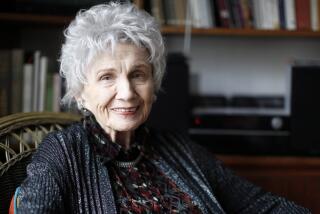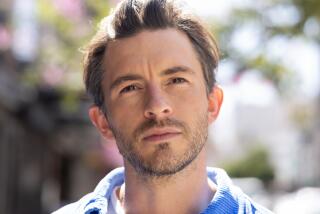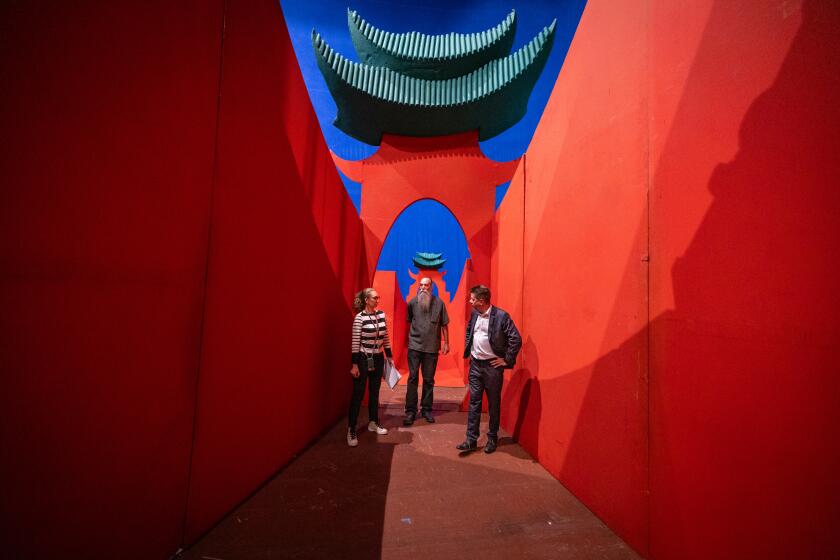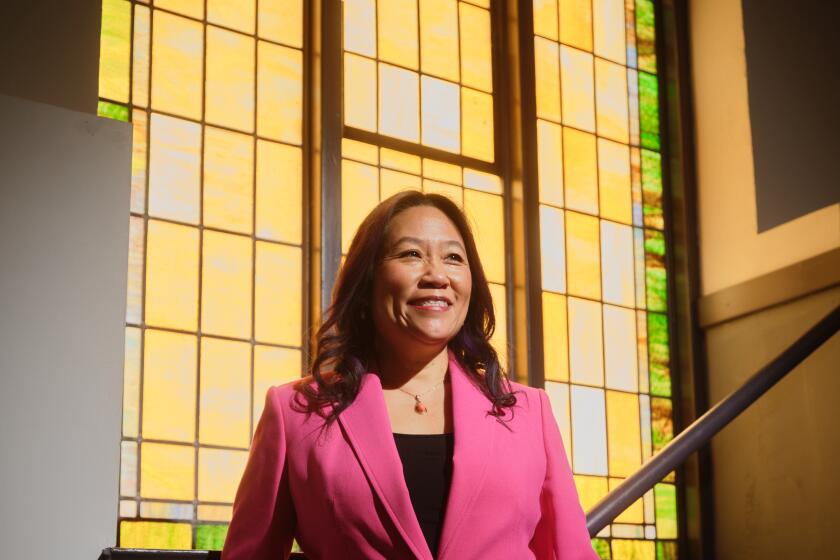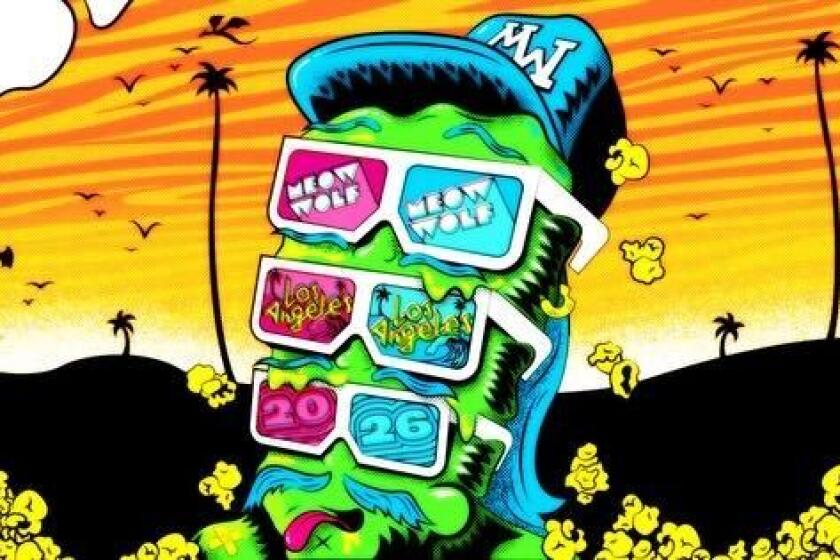EXIT THE GIANT : Eugene Ionesco, Interpreted
It was a jolt to hear the newscaster on National Public Radio announce early Monday that playwright Eugene Ionesco had died.
Not possible. Ionesco was one of the giants, not only for having radically changed the face of theater in 1950 with his “The Bald Soprano,” but for having continued to write such mind-blowers as “Rhinoceros,” “The Chairs,” “The Lesson,” “Jack or the Submission,” “Exit the King,” “Voyage Among the Dead”--all plays that were well ahead of their audiences. There were remarkable prose works, too, startling notebooks and journals and at least one screenplay--for a film about human inertia called “La Vase” (“Slime”), in which Ionesco himself was the sole, silent player with a group of inquisitive cows.
We met in the late ‘70s at USC, after a special showing of “La Vase.” I was assigned to interview the playwright chiefly because I spoke French and because he had successfully managed never to learn English. When he saw the piece in the paper the next day, he cut to the chase. “I had someone translate your article,” he told me. “You quoted me accurately.”
It was, I discovered, a declaration of friendship. After that, when Ionesco and his inseparable tiny dynamo of a wife, Rodica, came to the United States, he’d often ask for me as his interpreter. We were a good team. He spoke slowly, which gave me time to think of the words, and he trusted that I wouldn’t distort his meaning. I loved the perfect logic of his mind and his dry, uncommon wit. As a friend pointed out, without Ionesco there would have been no Monty Python.
The Ionescos loved California and visited often. For a while, we repeated this double gambit all over Los Angeles and beyond: when Paul Verdier of Stages Theatre held his first Ionesco Festival in the early ‘80s (Verdier had been a performer in the Paris “Bald Soprano”); when the Los Angeles Drama Critics Circle held an open forum at which Ionesco spoke and fielded questions; when he lectured at the First New York International Festival of the Arts in ‘88; at conferences at USC and at UCLA, where Ionesco took on Edward Albee, while John Houseman moderated. (They were dynamite; every time Albee paused to think, Ionesco, like an eager schoolboy, impishly offered to take the question for him!)
A diabetic, he was forbidden alcohol except for the occasional glass of wine. Once at a party at the Verdiers, I followed him into the kitchen where glasses of a rich Bordeaux were waiting to be ushered into the dining room. Gulping down two, he grabbed a third. Then turning pointedly to me, he said, “You didn’t see this,” and left the room.
But it was not always fun and games.
Depression was a perpetual enemy. In New York in ‘88, he was brooding and re-reading Kafka. Fame was important to him, more than he liked it to be. He felt overlooked when Samuel Beckett won the Nobel Prize. (He was overlooked, shamefully.) On recent visits to his Paris apartment, almost his first words to me were, “I think I’m being forgotten in America. . . .”
Fear of oblivion was as abiding as his well-publicized fear of death. In one way or another, it is the subject of all his plays. Transience and incoherence. Panic. The impossibility of communication and coming to terms with life. His favorite quotation was Macbeth’s “Tomorrow, and tomorrow, and tomorrow,/Creeps in this petty pace from day to day/To the last syllable of recorded time:/And all our yesterdays have lighted fools/The way to dusty death. . . .”
This mantra seldom left him. But even though I saw Ionesco battling his anguish and his deteriorating health too many times, another image will stay with me longer. It is that of his elation when museum curator Josine Ianco-Starrels, the daughter of his good friend, painter Marcel Ianco, came to see an exhibition of Ionesco’s paintings at Stages. They chatted in Romanian. She told him how much she liked what she saw.
It was supreme fulfillment. When she left, Ionesco jubilantly announced: “I have made a decision. From now on I will write no more plays. For the next 50 years, I’m going to paint. And after that, I’m going to dance.”
It is the perfect epitaph. The King is dead. Exit the King.
More to Read
The biggest entertainment stories
Get our big stories about Hollywood, film, television, music, arts, culture and more right in your inbox as soon as they publish.
You may occasionally receive promotional content from the Los Angeles Times.
